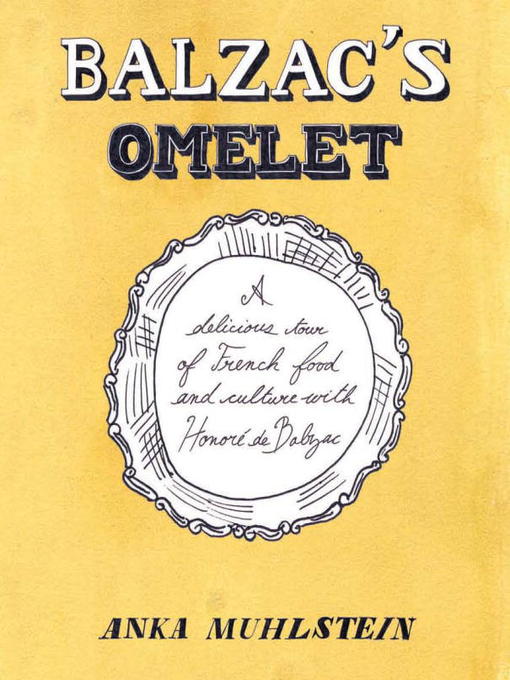
“Tell me where you eat, what you eat, and at what time you eat, and I will tell you who you are.” This is the motto of Anka Muhlstein’s erudite and witty book about the ways food and the art of the table feature in Honoré de Balzac’s The Human Comedy. Balzac uses them as a connecting thread in his novels, showing how food can evoke character, atmosphere, class, and social climbing more suggestively than money, appearances, and other more conventional trappings.
Full of surprises and insights, Balzac’s Omelette invites you to taste anew Balzac’s genius as a writer and his deep understanding of the human condition, its ambitions, its flaws, and its cravings.
-
Creators
-
Publisher
-
Release date
February 14, 2012 -
Formats
-
Kindle Book
-
OverDrive Read
- ISBN: 9781590514740
-
EPUB ebook
- ISBN: 9781590514740
- File size: 6219 KB
-
-
Accessibility
-
Languages
- English
-
Reviews

Loading
Formats
- Kindle Book
- OverDrive Read
- EPUB ebook
Languages
- English
Why is availability limited?
×Availability can change throughout the month based on the library's budget. You can still place a hold on the title, and your hold will be automatically filled as soon as the title is available again.
The Kindle Book format for this title is not supported on:
×Read-along ebook
×The OverDrive Read format of this ebook has professional narration that plays while you read in your browser. Learn more here.